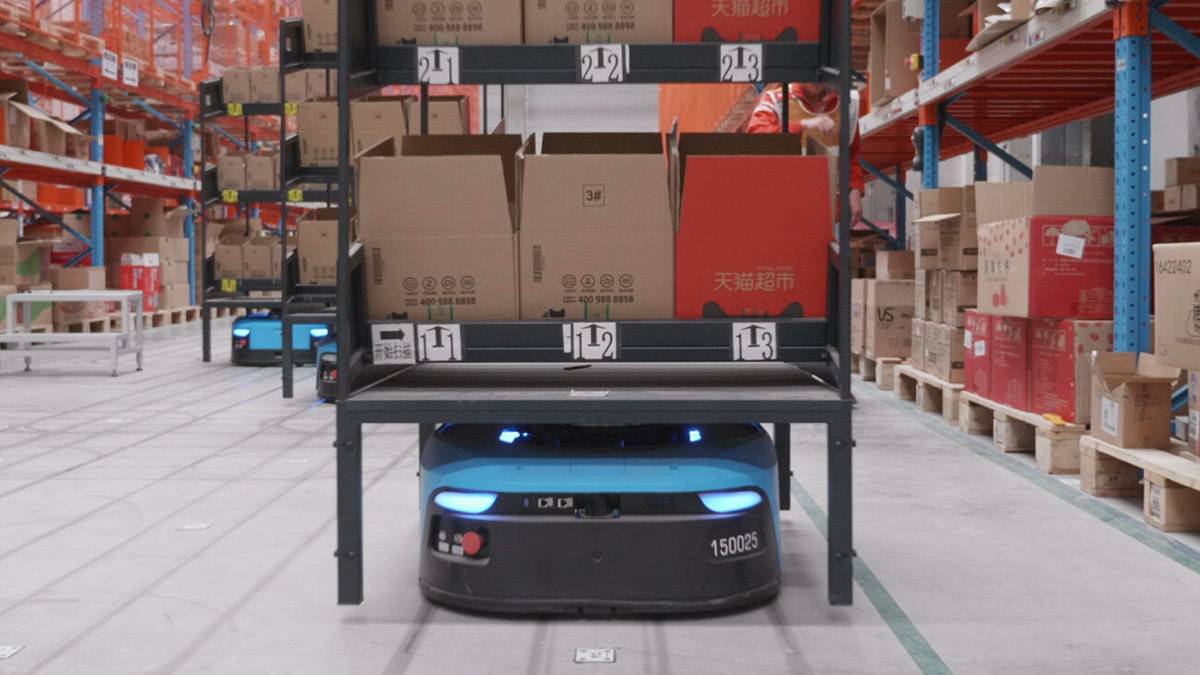
AI is beginning to embed itself into all aspects of our lives. From the growing number of self-checkout cash registers to advanced security checks at the airport; artificial intelligence is just about everywhere. SearchNode decided to find out where AI would be the most help for e-commerce businesses. This not only indicates respondents general thoughts but also possibly their intentions for growth in the future.
According to the survey, companies were most confident that personalization (73%), site-search (58%), marketing (48%), pricing (43%), and chatbots (36%), as the areas most likely to receive AI assistance in 2020. Today, we share powerful and practical ways that retail businesses are using AI in e-commerce, plus let’s see how e-commerce companies are using AI to drive higher sales and user experience.

AI is making sweeping changes to the way businesses deal with their customers, gaining faster access to information and harnessing employees’ talent for better use, moreover artificial intelligence transforming the traditional shopping experience. But how can AI be used to enhance this experience? The AI applications range from the ability to analyze data sets, identifying patterns and creating a personalized experience. This creates a unique approach that is more efficient than any human being. The face of sales is changing with businesses responding directly to the customer, it is as if businesses are “reading the minds” of customers and it’s all thanks to the data used with AI.

AI is helping by suggesting free recommendation either by text or pop up. With the ever-increasing advances in artificial intelligence and machine learning technologies, new deep levels of personalisation have started to penetrate the fast-growing online shopping. Searches related product is tracked and accordingly, suggestion approaches the users. Whether it is a mobile application, the website, or an email campaign, the AI engine is continuously monitoring all devices and channels to create a universal customer view. The recommendation of the products is the reflection of the user’s activities on the website and past purchases.

In the latest years, logistics had to face two challenges: a fast growth of online retail and the decrease of the available workforce. In this environment, the industry found in automation the perfect tool to grow the business and to optimize the operations. Since Cainiao, Alibaba’s logistics arm, opened the biggest automated warehouse in China, the company placed itself at the forefront of the logistics industry. Part of a broader Future Park, the 160,000-square meter complex is run by the Internet of Things applications, big data, edge computing, and artificial intelligence. Cainiao, and other PRC-based e-commerce and logistic companies, already implemented its warehouses with AGV and AI. Today this trend is imitated by Western giant too.

Once again China set the right path. In 2017 Alibaba was the first to test an AI-developed personal stylist, called Fashion AI, during its Single’s Day shopping event. Fashion AI, developed by a team within Alibaba, uses deep learning to recognize hundreds of millions of items of clothing. After a shopper makes a clothing selection, Fashion AI will recommend coordinating pieces, potentially based on information about a shopper’s previous browsing and purchase habits. It was just the beginning and the trend was exported around the world. AI is also enabling brands to create purposely-built ‘shoppers’ to assist their customers online. Flipkart, the Indian-based eCommerce company, has already made attempts to build human brain-like capabilities in order to sell smarter to more than 45 million of its registered online buyers.

| Cookie | Duration | Description |
|---|---|---|
| cookielawinfo-checkbox-analytics | 11 months | This cookie is set by GDPR Cookie Consent plugin. The cookie is used to store the user consent for the cookies in the category "Analytics". |
| cookielawinfo-checkbox-functional | 11 months | The cookie is set by GDPR cookie consent to record the user consent for the cookies in the category "Functional". |
| cookielawinfo-checkbox-necessary | 11 months | This cookie is set by GDPR Cookie Consent plugin. The cookies is used to store the user consent for the cookies in the category "Necessary". |
| cookielawinfo-checkbox-others | 11 months | This cookie is set by GDPR Cookie Consent plugin. The cookie is used to store the user consent for the cookies in the category "Other. |
| cookielawinfo-checkbox-performance | 11 months | This cookie is set by GDPR Cookie Consent plugin. The cookie is used to store the user consent for the cookies in the category "Performance". |
| viewed_cookie_policy | 11 months | The cookie is set by the GDPR Cookie Consent plugin and is used to store whether or not user has consented to the use of cookies. It does not store any personal data. |